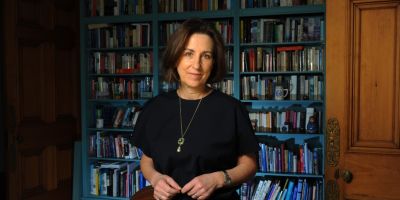Research reveals link between lack of trust in journalism and low levels of public news literacy

Low levels of trust in journalism linked to lack of knowledge about the news media industry.
A new pilot survey funded by the Universities of Leeds and Derby, shows that more than half of the population have low levels of news literacy and confidence, particularly with regard to how decisions are made in newsrooms, the editorial standards that are applied, and how they are regulated and enforced by industry bodies.
The News Literacy report, by Impress, the independent press regulator subtitled, Lessons in building public confidence and trust, is based on a survey with over 3,000 members of the public, with over 40 questions about how audiences engage with news in print, social media, TV and online. It found that levels of news literacy - the ability to critically process, analyse and evaluate news content - are low, leading to low levels of trust in journalism, particularly newer online news publishers.
The report is based on research conducted by Dr Julie Firmstone, Associate Professor at the School of Media and Communication at University of Leeds, in collaboration with Professor John Steel research professor in journalism at University of Derby.
When people feel knowledgeable about how news is regulated and how journalism works, they are more likely to trust the news it produces.
Dr Firmstone said, “This research brings much-needed evidence to understandings of what the public wants from news and the standards they expect journalism to fulfil. The report and the research demonstrate the importance of efforts to increase levels of news literacy among audiences, showing that when people feel knowledgeable about how news is regulated and how journalism works, they are more likely to trust the news it produces.”
The survey showed that TV is by far the most used news source by the public, with over half of people citing it as the main way of getting their news, while 32% of people chose online outlets as their main source of news, with Facebook by far the most used platform on social media. However, Facebook is the only platform where unofficial news use outperforms established outlets, while Twitter is (relatively) used more for finding news from established news organisations and journalists.
I do see major differences at times in the way that they are reporting things. I can’t be certain what is […] fact and what is fiction.
The research included focus groups, and one of the respondents stated: “I’ve been looking up lots of different coverage from different agencies and I do see major differences at times in the way that they are reporting things. I can’t be certain what is […] fact and what is fiction.”

The survey is part of a University of Leeds research project, Engaging the public in regulating for ethical journalism and received funding from the University’s ESRC Impact Acceleration Account, the University of Derby’s SURE Impact Accelerator Fund and Impress.
The Chair of Impress, Richard Ayre, said: “The message couldn’t be clearer. If we want to improve trust in journalism the whole industry needs to engage more openly with the public about news values, about how high standards can be achieved, and about the role regulation can play in maintaining those standards.”
If we want to improve trust in journalism the whole industry needs to engage more openly with the public about news values
Dr Firmstone said, “Declining public trust in journalism is already having social consequences, with misinformation, disinformation and the turn to unregulated social media making it harder for the public to develop the level of media literacy required to identify reliable information.”
The report concluded by saying that the public believe that the key to building confidence and trust in news is to improve journalism standards, ensure that regulation is operated independently of the news industry and to actively engage them in initiatives that deepen their understanding of how the news works, how it is regulated, and how they can relate to it.
Further research
Engaging the public in regulating for ethical journalism
Explore Communication and media studies at Leeds
School of Media and Communication at University of Leeds
Photo by Roman Kraft on Unsplash and Obi - @pixel6propix on Unsplash




